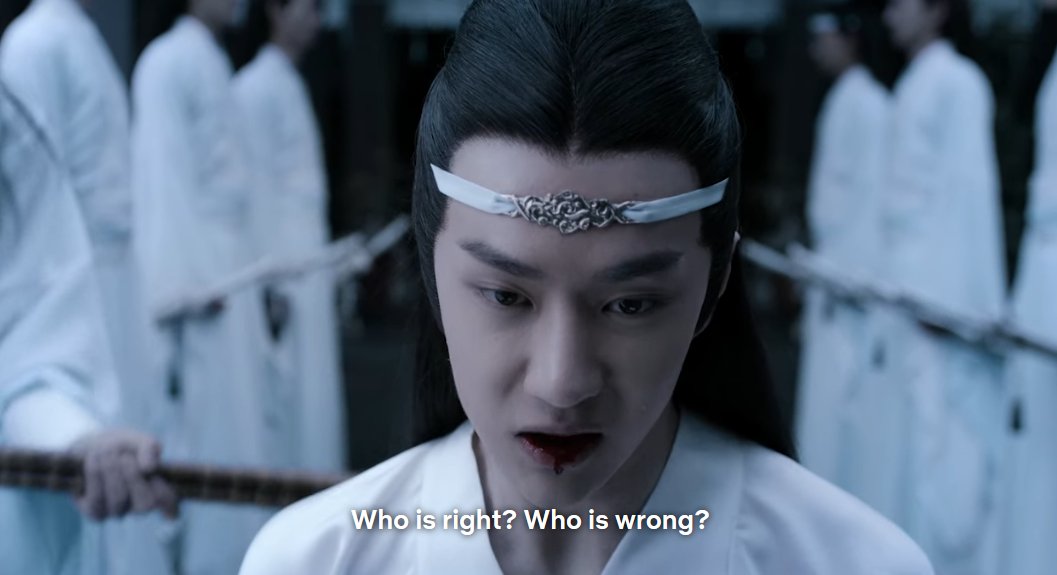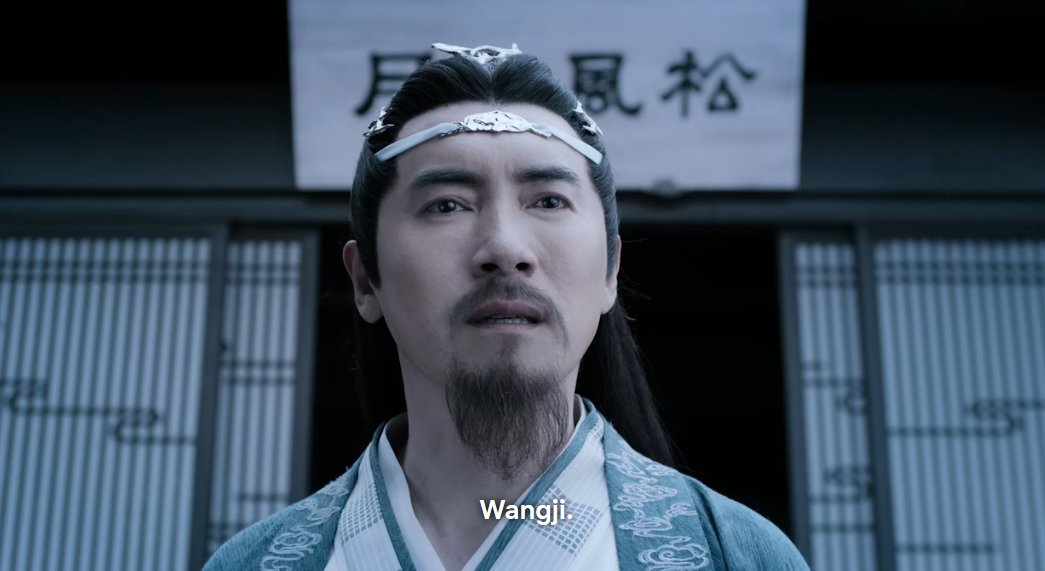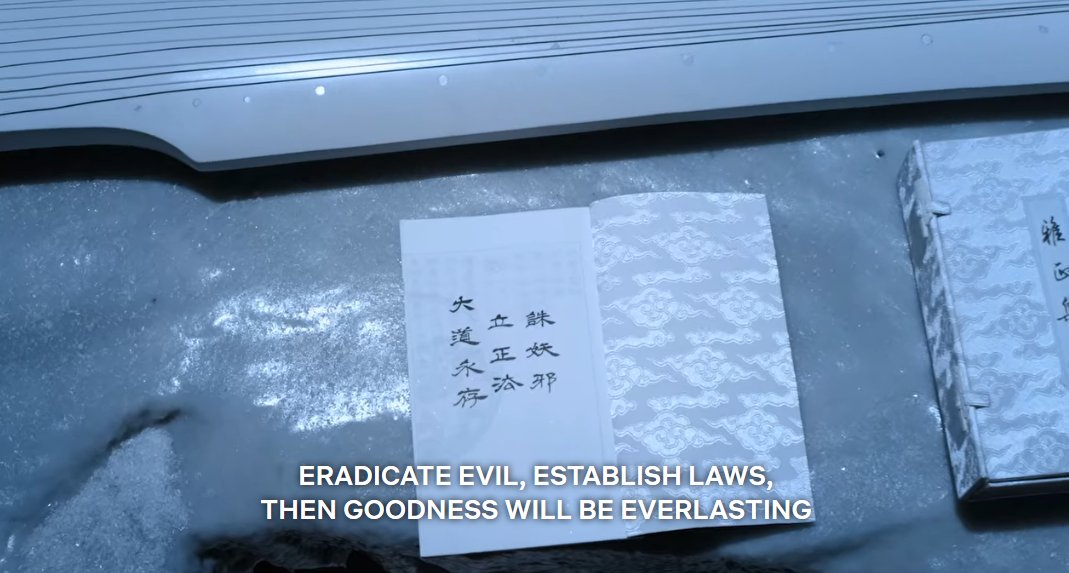The moment Lan Qiren finally realized all this wasn& #39;t just about A Boy and could thus be corrected over time, but that Lan Wangji& #39;s entire moral philosophy had shifted away from Lan orthodoxy at a fundamental level.
And it& #39;s not even that LWJ disagrees with the purpose of the Lan rules, because he doesn& #39;t.
It& #39;s because of this:
It& #39;s because of this:
"Eradicate evil, establish laws, then goodness will be everlasting."
But what if no one can agree on what is evil? What if you base your laws on a definition of evil and then that definition proves wrong? Are all your moral laws then invalid or corrupted themselves?
But what if no one can agree on what is evil? What if you base your laws on a definition of evil and then that definition proves wrong? Are all your moral laws then invalid or corrupted themselves?
LWJ found the logical flaw in the foundation of his sect& #39;s precepts.
Not because Wei Wuxian deliberately led him astray, but because Lan Wangji& #39;s own experiences brought him to that conclusion.
Not because Wei Wuxian deliberately led him astray, but because Lan Wangji& #39;s own experiences brought him to that conclusion.
And what I love about LWJ is he doesn& #39;t become nihilistic because of it. He& #39;s bitter, understandably, but instead of completely throwing out his moral framework, he evolves from his original letter-of-the-law stance to a spirit-of-the-law philosophy. He finds the shades of grey.

 Read on Twitter
Read on Twitter




